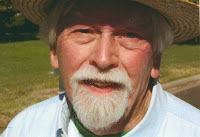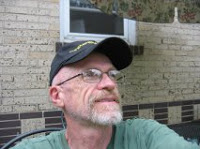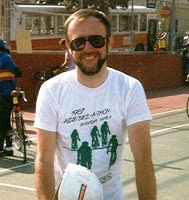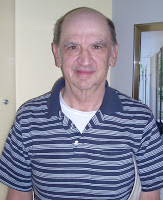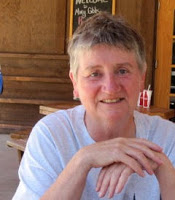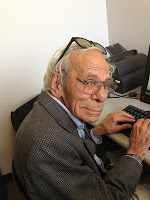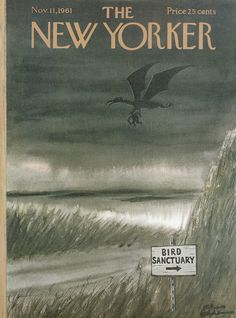I thought I had forgotten; I wish I
had forgotten. However, as I consciously pulled the threaded needle through the
fabric of those distant memories, the details slowly encroach upon me, one
after the other, mushrooming like a cloud of shadows hovering, lurking, having
waited patiently for the day they could again walk upon the earth. And as I
flesh out the details of those distant memories, as they become real, even now
decades later, I roll over in my bed and shed one solitary tear although in
truth I think I have mercifully forgotten why I weep.
It was a hot, sultry day in early
August. Having packed my few essentials and tossing and turning for hours, I
lay tormented in my bed, enveloped in the silence of the night, pondering the
moment when I would have to say good-bye to all I knew, all I was. I arose ever
so quietly lest I disturb my parents’ sleep although I knew that on that night,
no one slept. I dressed and tip-toed out into the darkness, the stars and moonlight
serving as my beacons. I walked the few blocks to the man whom I had met only
months earlier, the first man whose warm embrace I knew. Waiting for me at the
threshold of his home as I approached, I enveloped myself in his embrace and we
held each other, for our time together had been so brief, our future so
uncertain. Among the shadows of encroaching dawn, we walked into the garden he
and I had planted, smelling the unfurling tea roses and interlacing our fingers
as though we could never let go. Our
time was brief. I promised to return; he promised to wait until that day. I
walked back to my parents’ home, tears cascading down my cheeks, my heart
feeling as though it would tear through my sternum.
Being that I had to report to the army
recruiting office near Oregon and Mills across the street from San Jacinto
Plaza in central El Paso at 9 a.m., my parents were already at foot. They were
trying so hard to be stoic, even as I tried to deny the reality of events
around me. They dressed, wanting to break bread with me one more time before I
flew away. My father pulled out the Chevy, its dented fender a vestige of my
learning-to-drive days, and we headed out to a Denny’s for breakfast. We ate,
we chatted, but in retrospect we were so far away, trying so hard to hold on,
trying so hard not to let go. Afterwards, in the parking lot, I reminded myself
that although my world was in flux, I would return. I tried to capture the rays
of the early morning sun, to hold on to the gentle touch of my mother’s fragile
hands, knowing I was about to be thrust into manhood in spite of my wishes to
remain cocooned in the chrysalis of my childhood. I wanted to bask in Peter’s
arms the rest of that summer and forge our emerging lives; I wanted to till our
garden. I wanted to comfort my parents and continue to celebrate our Sunday
morning tradition of menudo and sweet bread. But from the moment I received my
draft notice weeks earlier, I knew that change was inevitable. I longed for
comfort like a new-born babe finding himself not in the arms of a mother who
had anticipated his birth, but rather in the emptiness of an institutional
layette. A few minutes before 9, we arrived at my destination, and I requested
they just drive off, afraid of betraying my macho
bravado with a deluge of emotions. Accepting the inevitability of time and
circumstances, I recognized the futility of my longings.
Arriving at the reception area, I
found twenty some boys quietly awaiting the arrival of all the conscripts and
volunteers. I took a seat, trying like most to become invisible, knowing that
that luxury could not be so. Promptly at 9, several U.S. Army officials
festooned with a multitude of colorful ribbons upon their chests, ushered us
into a room nearly and after a cursory introduction, lined us up, had us raise
our right hands, and had us recite an oath, offering our allegiance to military
duty. Some of the boys were patriots stepping forward to champion our nation’s
cause voluntarily, believing their blood would nurture glorious ideals and
righteous causes. The rest of us were boys whose lives were interrupted by the
draft but who nonetheless were determined to answer the call. We were simply boys
who had run out of deferments and saw no escape. Regardless of motivations, all
were now a union of brothers who would be preened and molded for combat duty in
distant lands. Earlier, I had debated declaring myself a conscientious objector
since I did recognize that the war was but a ruse, a rich man’s war being
fought by a disproportionate number of poor boys, fighting and dying for an
unpopular war to maintain a corrupt government. However, I thought such an
action would dishonor my uncle and father’s valorous service a generation
earlier, in spite of the fact that they had returned to a country that still
saw them as second-class citizens. I also considered declaring that I was gay.
After all, I had battled with my evolving gay identity for years and just that
spring I had been joyously thrust into its lovely, complex culture and been initiated
into the fold, when Peter and I met and declared our love. However, I feared the
long-term consequences of speaking my truth for dodging the Vietnam draft,
especially since so many men pretended unsuccessfully to be gay to avoid
military service. Furthermore, being gay still carried a negative psychological
stigma that I did not yet have the wherewithal to question or deny. Perhaps, I
was simply an Emerson blow heart dutifully paying his taxes even as Thoreau languished
in jail for refusing to do so, recognizing the conflict of their time was but a
land grab of epic proportions. Perhaps, I was simply a coward who feared the
repercussions of not moving to the back of the bus. Thus, I mumbled my oath,
swallowed hard, and lowered my eyes in resignation, for once the words are given
wings, I recognize oaths become actualized.
I have but snippets of recollections
of what transpired the remainder of that day since everything from then on out
was a whirlwind of events. We were herded into buses and summarily hauled to El
Paso International Airport to be transported to L.A. Never having flown, I
looked down at America stretching out before me, wishing I could open the
airplane door and soar away to discover it, know it, claim it for my own.
Descending upon L.A. that evening, my mouth was agape at the lights that
emblazoned beneath me even toward the most distant horizons. They appeared like
a massive crab stretching out forever as though valiantly battling against the
inky blackness of a void devouring it. Never did I know America was so massive, so
oblivious to the realities of a boy from the fringes of its seams. Upon
arriving at LAX, we were goaded toward a small two-engine plane, which followed
the California coastline toward our final destination at Fort Ord near
Monterey. It was late and the darkness of the night mirrored the trepidation I
felt within. Arriving at our destination so late at night along with hundreds
of other boys who had arrived from throughout the country, we were finally
allowed to bed down in army-issued bunkbeds. The room went dark, and we coiled within
the itchy olive drab wool blankets and sought refuge from the uncertainty of
what awaited. I pulled out a small locket containing Peter’s hair, and held it
to my chest, desperately trying to keep my cloaked sobs to myself. Although I
wanted to awaken from the nightmare, exhaustion finally overwhelmed me and I
lapsed into a sleep that momentarily staved off the fears and doubts of the
unknown. Soon enough, we knew we would awaken and discover the sun water
coloring the clouds. We were boys from dusty Texas cow towns like El Paso,
Mesilla and Ysleta. We were boys from the windswept great plains of Dodge City
and Enid in Oklahoma and Kansas. We were boys from western hamlets of Alamosa,
Farmington, and Gallup in Colorado and New Mexico. We were boys from the inner city
barrios and ghettos of Watts and East LA. We had so little in common, except
that we were a divergent mass of humanity about to be molded by fates that
would anchor us to the annals of history.
Years after my stint in the U.S. Army
after decades of trying to forget the past, I walked into the Holocaust Museum
in Washington, D.C. The experience was unexpectedly personal for me. I
reflected on the millions who not long before had been unwillingly uprooted
from their homes in Germany and Poland and throughout Europe’s backbone, only
to awaken in camps with names such as Dachau
and Buchenwald, Auschwitz-Birkenau and Sobibor.
Entering a cattle car where “asphalt culture” Jews and “degenerative pervert”
gays had once been transported, I broke down and wept. My brothers and sisters
from American cow towns and from hope-defying Polish ghettos had been
sacrificed, and I’m not sure history has ever truly come to terms with the
magnitude of the sacrifices. I was one of the lucky ones. I survived something
I would rather forget. I returned relatively intact to my home, to the cow town
that infused me with its blood, allowing me to tell a story history would prefer
not be told except perhaps in hushed whispers during moonless nights.
© 29 Aug
2016, Denver
About the Author

Cervantes wrote, “I know who I am
and who I may choose to be.” In spite of
my constant quest to live up to this proposition, I often falter. I am a man who has been defined as sensitive,
intuitive, and altruistic, but I have also been defined as being too shy, too
retrospective, too pragmatic. Something
I know to be true. I am a survivor, a contradictory balance of a realist and a
dreamer, and on occasions, quite charming.
Nevertheless, I often ask Spirit to keep His arms around my shoulder and
His hand over my mouth. My heroes range
from Henry David Thoreau to Sheldon Cooper, and I always have time to watch Big
Bang Theory or Under the Tuscan Sun. I
am a pragmatic romantic and a consummate lover of ideas and words, nature and
time. My beloved husband and our three
rambunctious cocker spaniels are the souls that populate my heart. I could
spend the rest of my life restoring our Victorian home, planting tomatoes, and
lying under coconut palms on tropical sands.
I believe in Spirit, and have zero tolerance for irresponsibility,
victim’s mentalities, political and religious orthodoxy, and intentional
cruelty. I am always on the look-out for
friends, people who find that life just doesn’t get any better than breaking
bread together and finding humor in the world around us.
